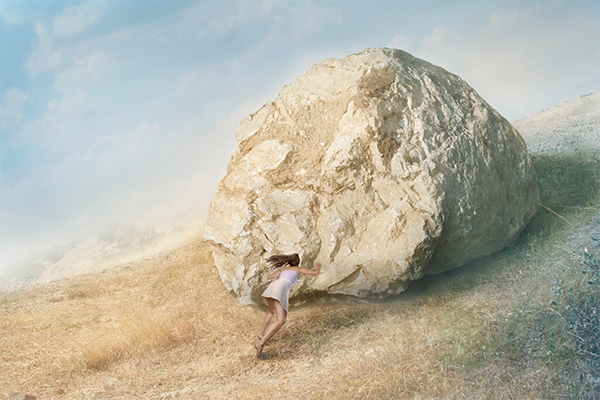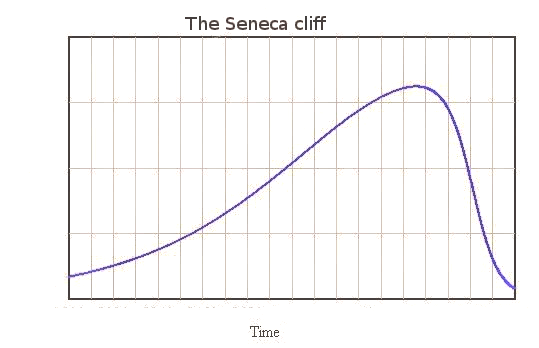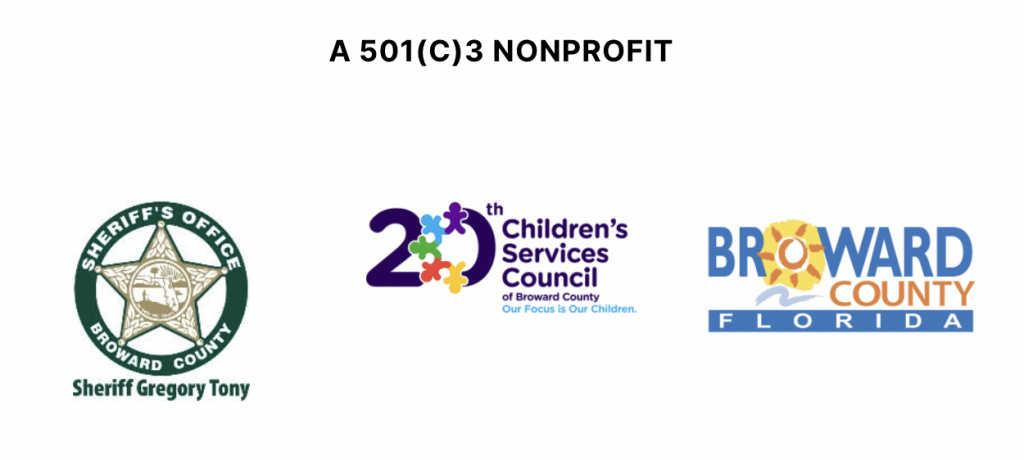
Perhaps you have noticed times in your life when it seems like everything you have worked towards falls apart without warning. Whether it is a business that you are building, a habit you are trying to establish, or making long-term changes in your lifestyle or mindset, our plans seem to go haywire and we are left wondering what went wrong.
How could this happen? More importantly, how do you prevent it from ever happening again?
Fortunately, this is a phenomenon that has been studied and described. It has a name, and the solution to preventing these catastrophic downfalls is simpler than you think.
The Seneca Effect is a mathematically observable pattern proposed by Ugo Bardi that can (in a way) predict oncoming disaster.
This phenomenon is named after the Roman philosopher and playwright Seneca the Younger who wrote “Fortune is of sluggish growth, but ruin is rapid.”
The Seneca Effect (or Seneca Collapse) states that the decline of something is much more rapid than its growth. In other words, it can take a long time to build something up and a short amount of time to tear it down.

This concept is relevant to personal finance, economics, business, or any manner of discipline. In this article, we are going to apply it to personal growth and development.
When we are working hard to develop better life habits and ways of thinking, it feels like the uphill climb is never-ending. We feel like Sisyphus, fated to forever push our boulder uphill without end or reprieve. Occasionally the temptation to give up or at the very least ease off our daily work towards improvement may seem overwhelming.
Even worse, we may feel that we have just done enough. We have learned enough, practiced enough.
Everything will be fine.
It is at this point that we are in the greatest danger of reverting to our old destructive habits, negative mindsets, and ways of thinking.
It is the complacency of good enough that casts us down from the peak of our accomplishments and has us once again slowly roll our boulder up the hill to try again.
The key to avoiding this fate is simple. Keep learning. Keep learning even when you don’t want to, especially when you don’t want to.
When you are starting your journey of self-improvement, you are new and open to instruction. You are always learning and improving. It then becomes natural to become so adept at what you do you become somewhat of an expert at doing it. Eventually, you continue without thought or regard to whether you are still pushing yourself in the right direction. You’re almost on autopilot. You become complacent.
Everything seems good until it isn’t.
Life circumstances change, and you realize that your way of doing things no longer works. Your system is out of date, and you haven’t been maintaining it.
Now we’re back to the bottom.
One of the most amazing things about life is that we can build our peak to infinite heights. We can avoid the cliff altogether. The universe is not a system of limited resources. We want to strive to better ourselves a little bit each day. We want to learn new ways of looking at the world and make consistent improvements so that we can avoid Seneca’s collapse.
True, there will be times when we slip up and maybe even fall just a bit. We pick up a bad habit that we thought we rid ourselves of. We fall back into patterns of defeatist and negative thinking. The idea here is not to be perfect, but to avoid the big fall that brings us back to despair and hopelessness.
The idea is to better yourself in small increments as a part of a daily habit, and in doing so, we can avoid ever having to tumble down the face of that catastrophic cliff.
If you feel like you need help putting your life into perspective, Healing Arts Institute offers a range of therapeutic and coaching programs to help you reach your highest potential.
Please visit us on our website for more information and let us be your guide.
Citations
Bardi, Ugo (2017). The Seneca Effect: Why Growth is Slow But Collapse is Rapid. Springer.
Heinrich, Torsten. “Resource Depletion, Growth, Collapse, and the Measurement of Capital.” (2014).
Bardi, U. (1970, January 01). The Seneca effect: Why decline is faster than growth. Retrieved December 08, 2020, from https://cassandralegacy.blogspot.com/2011/08/seneca-effect-origins-of-collapse.html


No responses yet